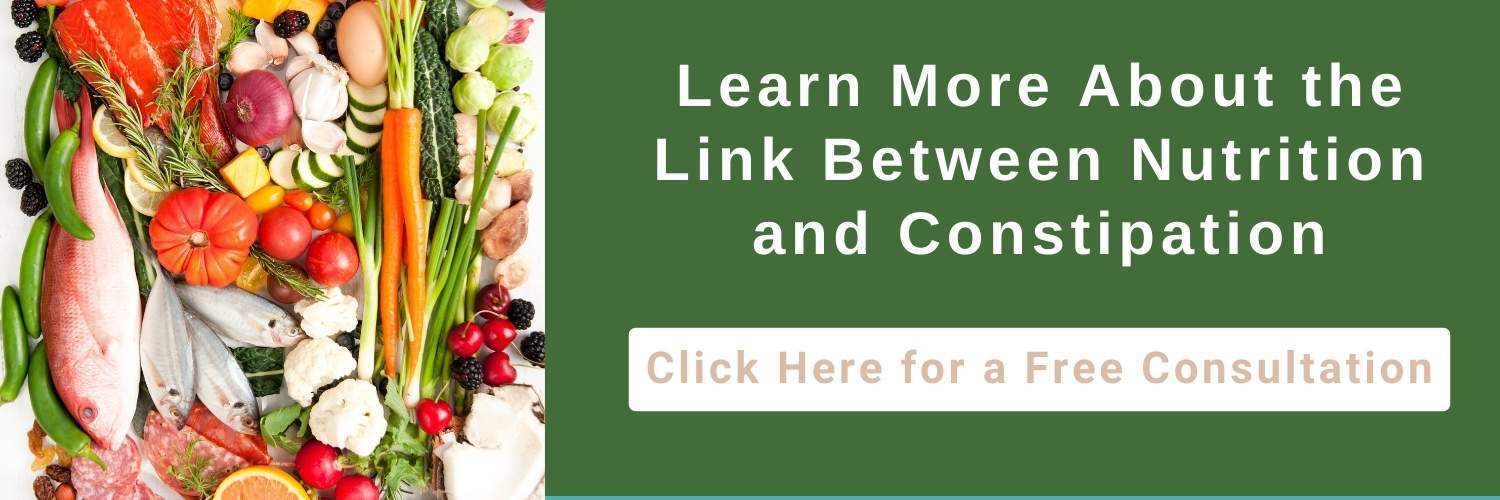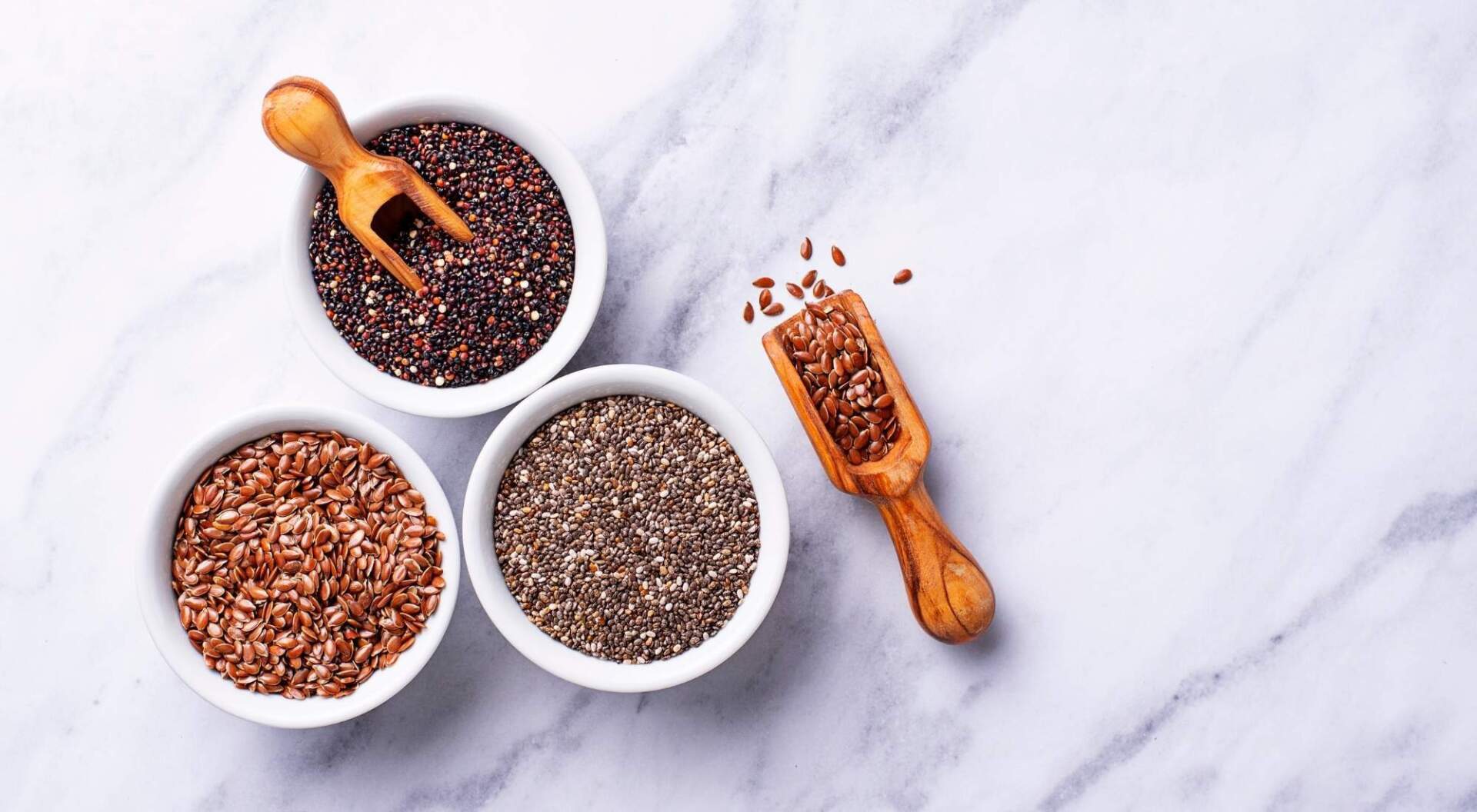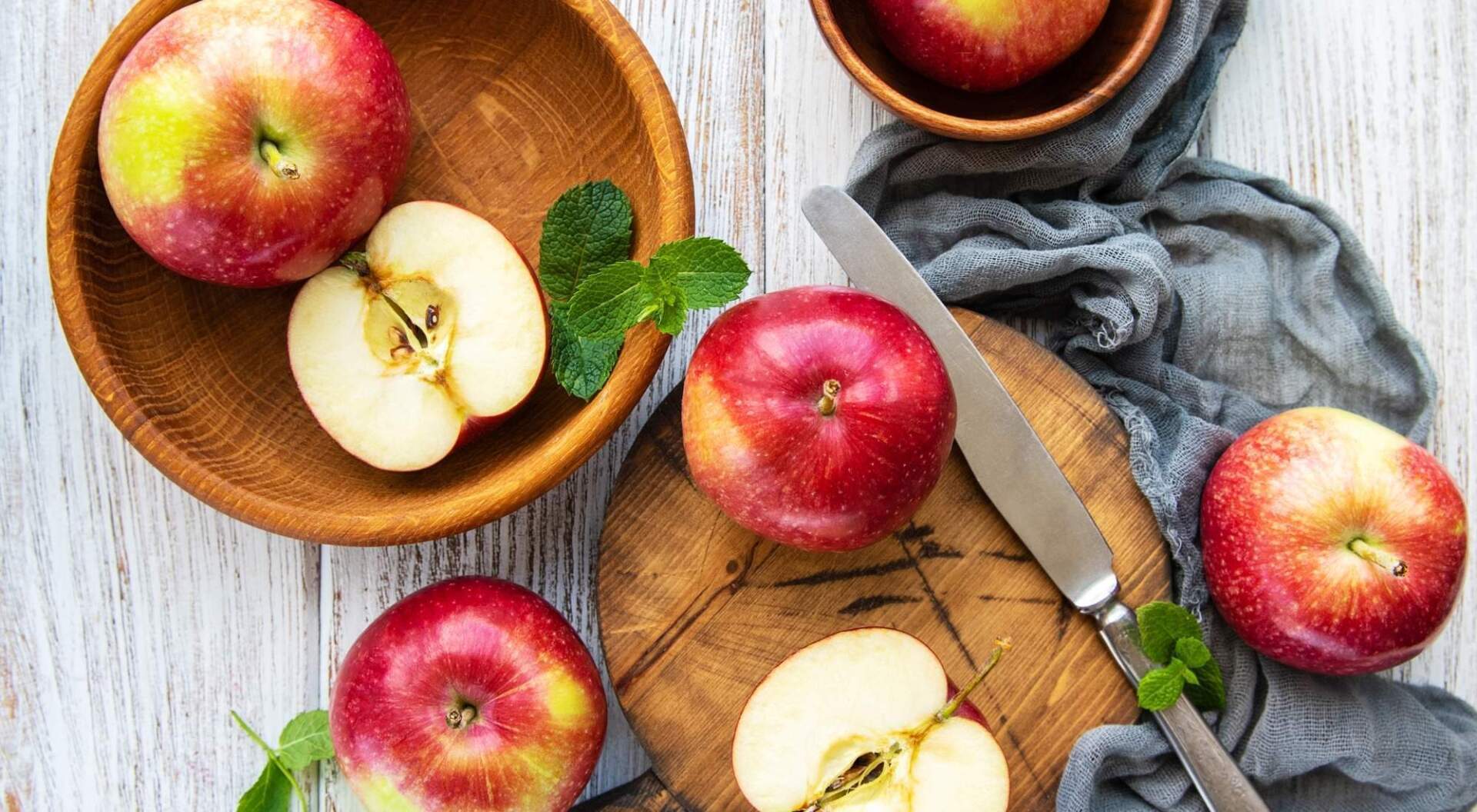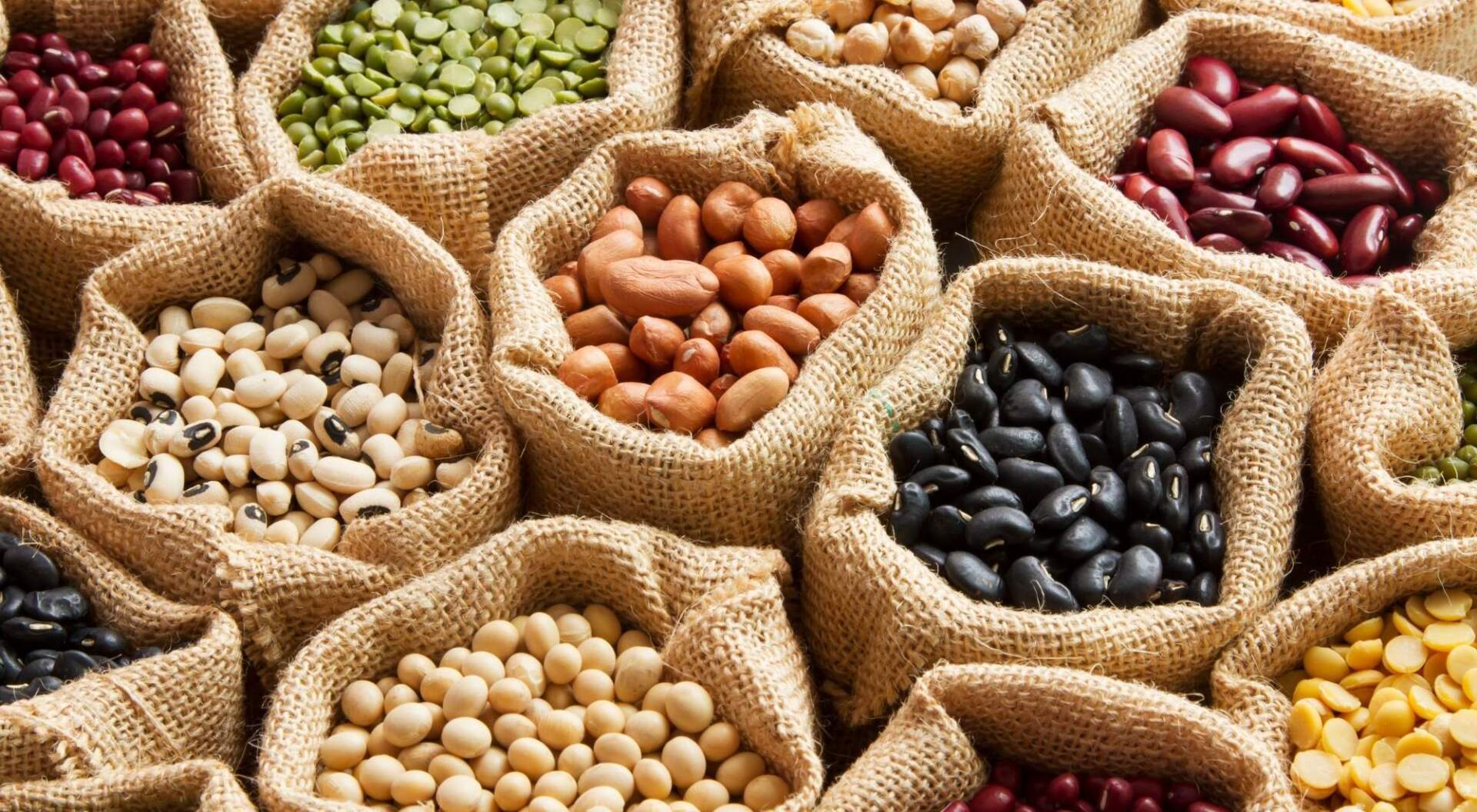Constipation Nutrition Therapy: 5 Foods to Eat and 5 Foods to Avoid
"The content below is not intended to be a substitute for professional medical advice, diagnosis, or treatment. Always seek the advice of your physician or other qualified health provider with any questions you may have regarding a medical condition."
The cramping… the bloating… the waves of nausea… and let’s not leave out the straining. Spending hours in the bathroom is simply not an option.
Constipation is the worst, but you’re nervous about taking laxatives or stool softeners because the side effects seem almost as bad as the symptoms you already have.
What’s the alternative? Constipation nutrition therapy.
Let’s take a closer look at
what foods can relieve constipation and what foods to avoid while constipated.
Table of Contents
- What Is Constipation Nutrition Therapy?
- Can a Nutritionist Help With Constipation?
- When Should You Consider Constipation Nutrition Therapy?
- Nutrition and Constipation: Foods to Eat and Foods to Avoid
- Top 5 Foods That Help Relieve Constipation
- Top 5 Foods to Avoid if Constipated
- What Is the Best Diet to Prevent Constipation?
- Other Considerations to Prevent Constipation
- HealthierU Offers Nutrition Testing to Help You Get Relief From Constipation
What Is Constipation Nutrition Therapy?
Constipation nutrition therapy involves making dietary and lifestyle changes to help address the underlying cause of constipation, such as:
- Increasing fiber intake
- Drinking more water
- Exercising regularly
- Reading food labels
- Avoiding certain foods
Anyone experiencing …
- Difficulty passing stool
- A feeling that not all of your stool has passed
- Hard, lumpy, or dry stool
- Less than three bowel movements per week
… you likely have constipation and may want to consider constipation nutrition therapy to help you find relief and get your bowels moving properly.
Can a Nutritionist Help With Constipation?
If your constipation is diet-related — and for most people it often is — a nutritionist can help you adjust your eating style by identifying ways to increase your fiber intake. A nutritionist will help develop a meal and exercise plan that is suited to your individual needs.
It’s always best to speak to your healthcare provider before taking any medication.
When Should You Consider Constipation Nutrition Therapy?
If you’ve determined that the cause of your constipation is diet-related, nutrition therapy may be exactly what you need to combat constipation.
At HealthierU in Brooklyn, NY, Dr. Donna Sergi is a holistic chiropractor using Nutrition Response Testing (NRT) to help her patients find relief from constipation.
NRT will get to the root cause of your constipation issues and Dr. Sergi will develop the best diet to prevent constipation based on your individual results.
For more information about Nutrition Response Testing —
and finding relief from your constipation — contact HeathierU to book your consultation.
Nutrition and Constipation: Foods to Eat and Foods to Avoid
Common nutritional deficiencies that may cause constipation include:
- Inadequate hydration
- Lack of fiber; and
- Certain nutrient deficiencies
Nutrition therapy can help to improve constipation by helping to improve the balance of fluids, fiber, and nutrients in the body.
Top 5 Foods That Help Relieve Constipation
#1: Beans and Legumes
Beans provide an excellent source of both soluble and insoluble fiber, both of which can keep foods moving through your digestive system. With more than 10 grams of fiber per cup, they’re better than almost any other source of fiber.
Try adding any one of these beans to your next soup, salad, casserole, or pasta dish:
- Garbanzo beans
- Kidney beans
- Black-eyed peas
- Pinto beans
- Lima beans; or
- Baked beans
The
recommended weekly intake of legumes is six servings or three cups.
#2: Flaxseed
Flaxseed is an excellent source of fiber, omega-3 essential fatty acids, and antioxidants, and what’s more, it’s an excellent food choice to help relieve constipation.
A tablespoon of each golden and brown flaxseed contains nearly 3 grams of soluble and insoluble fiber.
Adding ground flaxseed to your salads, oatmeal, smoothies, and more quickly adds much-needed fiber to any meal.
#3: Oats and Whole Grains
Whole grains and oats also contain a lot of fiber, a great choice for proper bowel care.
Whole-grain rye or wheat bread, oats, barley, rice, and corn are excellent additions to your diet because they naturally contain
arabinoxylan, a dietary supplement often used to treat constipation.
#4: High-Fiber Fruits and Vegetables
Are you sensing a theme yet? One thing all of these foods have in common is that they’re high in fiber and dense in nutrients.
Fruits and vegetables are among the best natural foods to relieve constipation. Try adding at least five servings of fruits and vegetables to your day.
Choose from any of these nutrient-rich options for optimal fiber intake:
- 1 cup of avocado = 10 grams of fiber
- 1 medium apple = 4.4 grams of fiber
- 1 cup of raspberries = 8 grams of fiber
- 1 French artichoke = 6.9 grams of fiber
- 1 medium pear = 5.5 grams of fiber
- 1 cup of strawberries = 3 grams of fiber
- 1 medium ripe banana = 3.1 grams of fiber
- 1 cup of carrot sticks = 3.6 grams of fiber
- 1 cup of broccoli = 2.4 grams of fiber
Some other vegetables and fruits worth mentioning include beets, kale, Brussels sprouts, spinach, tomato, blueberries, passionfruit, kiwi, and citrus fruits.
#5: Water
Approximately 75% of Americans are not getting enough water. In addition to the many risks of dehydration, insufficient water intake can contribute to constipation.
When you drink enough water and other liquids, such as natural fruit juices and clear soups, the fiber you’re consuming goes to work making your stools softer and easier to pass.
Staying properly hydrated is critical to your overall health and is a great way to avoid constipation.
To find out exactly how much water you should be consuming, your doctor will factor in:
- Your size
- Your activity level
- Your current health; and
- Where you live
Top 5 Foods to Avoid if Constipated
Now that you know the best foods to combat constipation, let’s take a look at the foods you’ll want to avoid.
#1: Red Meat
While red meat doesn’t cause constipation, it can take the place of fiber-rich alternatives when eaten regularly.
Red meat is harder to digest — especially when consumed as fast food. Often high in fat and sugar, fast food red meat can also upset the bacteria in your gut.
While you don’t have to give it up completely, adding fiber-rich foods to your plate can help offset the negative effects. Try having a side salad with your burger, or eating a baked potato (skin on!) for constipation relief.
#2: Dairy
Cheese has long since had the reputation for being somewhat “binding” — and for good reason.
Dairy products made from cow’s milk tend to be high-fat and low-fiber, making them harder to digest and often causing constipation if eaten in excess.
If you can’t give up dairy, try reducing your intake and ensuring that you’re eating fiber-rich foods alongside your favorite dairy treats.
#3: Processed Foods
Processed foods pale in comparison to a homemade meal. Oftentimes, they’re loaded with unhealthy fats and sodium, and low on fiber and nutrients.
A “meal in a box” may seem like a busy person’s solution, but it’s best avoided. Sodium requires a lot of water to dilute it, making it more difficult to pass waste through the body, and saturated fats are also associated with constipation.
If you’re in a rush, try whipping up a healthy smoothie or salad to get you through.
#4: Fried Foods
Frying foods can drastically increase the amount of saturated fats, making them difficult to digest. If you’re already having a hard time on the toilet, it’s best to pass on fried foods.
Fatty foods move slowly through your colon, removing water along the way, which can make for hard, dry bowel movements that are difficult to pass.
#5: Caffeine
Caffeine can go either way when it comes to bowel movements. A sufficiently hydrated person who doesn’t overdo their coffee consumption should have no issue with digestion or constipation.
However, if you’re dehydrated caffeine found in …
- Coffee
- Black tea
- Cola; or
- Chocolate
… can cause or exacerbate constipation.
What Is the Best Diet to Prevent Constipation?
To prevent constipation your diet should include plenty of fiber-rich foods while avoiding or eliminating hard-to-digest foods that are high in fat and sugar.
Eating enough dietary fiber increases the size and weight of your stool and softens it. A bulky stool is easier to pass.
Conversely, if your stool is watery or loose, fiber can help solidify the stool because it will absorb the water and add bulk.
Increase your intake of fruits, vegetables, and legumes and reduce your consumption of fatty, processed, high-sugar foods for optimal digestive health.
Other Considerations to Prevent Constipation
Lifestyle plays an important role in our overall health. Consider making the following lifestyle changes as a complement to your constipation nutrition therapy:
- Exercise for a minimum of 150 minutes per week
- Make sure you’re staying hydrated
- Limit your alcohol intake
- Try to go to bed and wake up at the same time every day
- Reduce your stress levels
- Relieve yourself as soon as possible when you feel the urge
If you’re experiencing chronic constipation and dietary and lifestyle changes don’t help, you should contact your healthcare provider.
HealthierU Offers Nutrition Testing to Help You Get Relief From Constipation
There’s no denying that constipation is a pain in the … Well, you get it. It’s no fun.
But, with Nutritional Response Testing and individualized constipation nutrition therapy, Dr. Donna Sergi can help you with a plan to safely increase your fiber intake, stay hydrated, and learn some gentle exercises that can keep things moving.
Contact HealthierU in Brooklyn, NY, for more information about Nutritional Response Testing and how it can help determine the right foods to eat to ease constipation.






